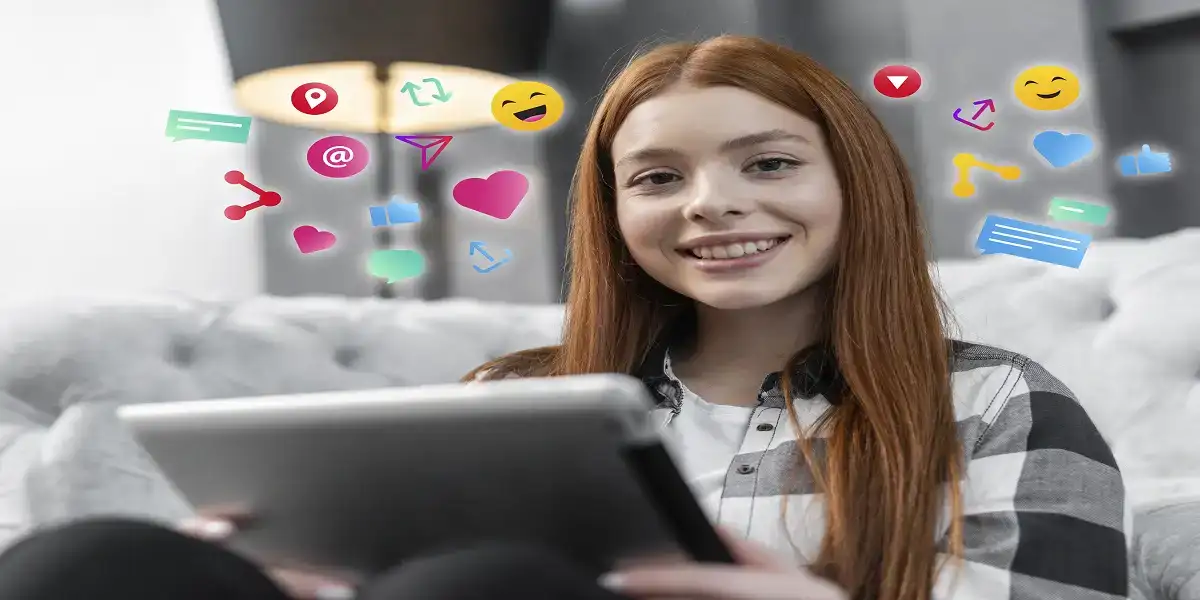Social media has become an integral part of modern life, influencing nearly every aspect of how we communicate, consume information, and perceive the world around us. One significant group that has been particularly impacted by the rise of social media is young women, often referred to in online discussions as “socialmediagirls.” This term encompasses the generation of girls and young women who have grown up with social media as a fundamental part of their daily lives. This article delves into the various dimensions of the “socialmediagirls” phenomenon, examining its effects on mental health, body image, self-esteem, social relationships, and more.
The Rise of SocialMediaGirls
The term “socialmediagirls” broadly refers to the demographic of young women who are active users of platforms like Instagram, TikTok, Snapchat, and Twitter. These platforms have provided young women with unprecedented opportunities for self-expression, creativity, and connection. However, they have also introduced new challenges and pressures that can have profound impacts on their lives.
The Power of Social Media Platforms
Social media platforms have evolved into powerful tools for communication and self-presentation. For many young women, these platforms serve as spaces where they can curate and share their lives, showcasing their interests, achievements, and personal styles. The visual nature of platforms like Instagram and TikTok has particularly appealed to young women, allowing them to engage in creative self-expression through photos, videos, and other multimedia content.
Influencer Culture and Aspiration
One of the defining features of the “socialmediagirls” phenomenon is the rise of influencer culture. Influencers, often young women themselves, have become major players in the social media landscape, amassing large followings and shaping trends. These influencers can inspire their followers with fashion tips, beauty tutorials, lifestyle advice, and more. However, the aspiration to emulate the often idealized and filtered lives of influencers can lead to unrealistic expectations and feelings of inadequacy among their followers.
Mental Health Implications
The impact of social media on mental health has been a topic of extensive research and debate. For “socialmediagirls,” the constant exposure to curated and often idealized representations of others’ lives can have significant psychological effects.
Comparison and Self-Esteem
One of the most pervasive issues associated with social media use among young women is the tendency to compare oneself to others. Social media feeds are filled with images of seemingly perfect lives, bodies, and relationships. For many young women, this can lead to feelings of inadequacy, low self-esteem, and body dissatisfaction. Studies have shown that the more time young women spend on social media, the more likely they are to engage in social comparison and experience negative emotions as a result.
Anxiety and Depression
The pressure to maintain a certain online persona and the fear of missing out (FOMO) can contribute to anxiety and depression among young women. The need to constantly update one’s profile, gain likes, and receive positive feedback can create a cycle of stress and validation-seeking. Moreover, the anonymity and distance provided by social media can sometimes lead to cyberbullying and online harassment, further exacerbating mental health issues.
Body Image and Self-Perception
Body image is a critical issue for many young women, and social media has a profound impact on how they perceive their bodies.
The Idealized Body
Platforms like Instagram are notorious for promoting an idealized body type that is often unattainable for most people. The prevalence of images featuring slim, toned, and conventionally attractive bodies can create unrealistic beauty standards. This can lead to body dissatisfaction, disordered eating, and other unhealthy behaviors as young women strive to conform to these ideals.
Filters and Photoshop
The use of filters and photo-editing apps has become ubiquitous on social media. While these tools can enhance images and allow for creative expression, they can also distort reality and contribute to body image issues. Young women may feel pressure to alter their appearances to match the heavily edited images they see online, leading to a disconnect between their real and virtual selves.
Social Relationships and Interpersonal Skills
Social media has transformed the way young women interact with their peers and form relationships.
Online Friendships and Support Networks
For many “socialmediagirls,” social media platforms provide valuable opportunities to connect with like-minded individuals and form supportive communities. Online friendships can be a source of emotional support, advice, and validation. These connections can be particularly important for young women who may feel isolated or marginalized in their offline lives.
The Downside of Digital Communication
However, the shift towards digital communication also has its downsides. The lack of face-to-face interaction can hinder the development of essential interpersonal skills, such as empathy, active listening, and conflict resolution. Additionally, the curated nature of social media interactions can lead to superficial relationships and a lack of deep, meaningful connections.
The Role of Parents and Educators
Given the profound impact of social media on young women, it is crucial for parents, educators, and policymakers to understand and address these issues.
Media Literacy Education
One of the most effective ways to mitigate the negative effects of social media is through media literacy education. Teaching young women to critically analyze the content they encounter online can help them develop a healthier relationship with social media. Media literacy programs can equip them with the skills to recognize unrealistic portrayals, understand the motives behind advertising and influencer marketing, and make informed decisions about their own social media use.
Open Communication and Support
Parents and educators should foster open communication about social media use and its effects. Creating a safe space for young women to discuss their experiences, fears, and challenges can help them navigate the complexities of the digital world. Providing support and guidance can also empower young women to set healthy boundaries and prioritize their mental well-being.
Conclusion
The phenomenon of socialmediagirls reflects the broader societal shifts brought about by the digital age. Social media has given young women powerful tools for self-expression, connection, and empowerment. However, it has also introduced new challenges related to mental health, body image, and social relationships. By understanding these impacts and promoting media literacy, open communication, and support, we can help young women navigate the digital landscape in a way that enhances their well-being and fosters positive self-esteem.
In a world where social media is likely to continue evolving and influencing the lives of young women, it is essential to strike a balance between embracing the benefits of these platforms and mitigating their potential harms. Through education, awareness, and support, we can empower “socialmediagirls” to thrive in both their online and offline lives





[…] consultants recommend using social platforms. It is the best way to connect with potential donors. Social media also allows you to reach a diverse audience easily and quickly. Moreover, your fundraising […]